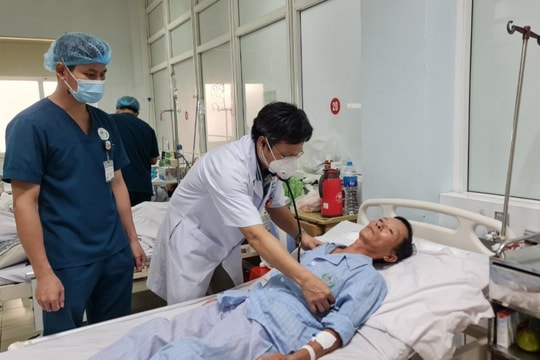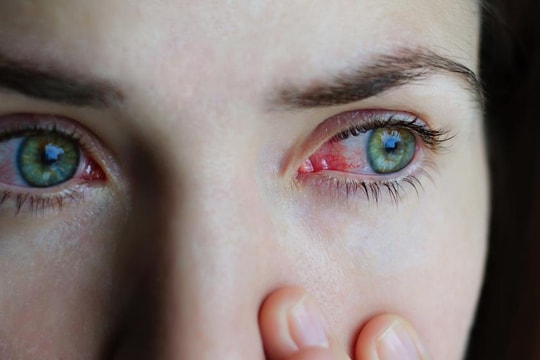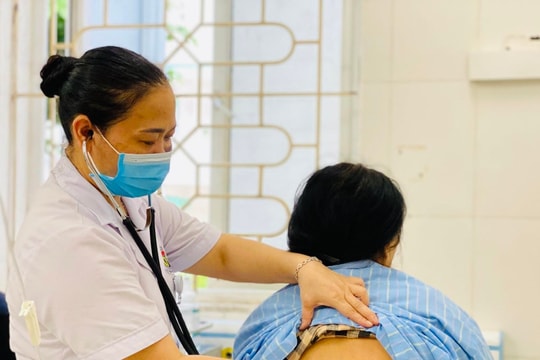The danger of antibiotic resistance
(Baonghean)- The indiscriminate use of drugs has caused drug resistance, leading to unpredictable consequences. Antibiotic resistance is becoming more and more common, causing diseases to spread quickly, become difficult to treat, and be expensive...
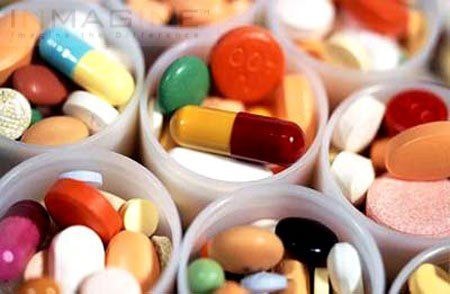 |
| Drug resistance leaves unpredictable consequences - illustration photo. |
Whenever she has a headache or a runny nose, Ms. Phan Thi Luong (in Quan Bau ward, Vinh city) goes to a pharmacy near her house to buy antibiotics. Ms. Luong said: "Because I almost always feel better and recover after taking the medicine, so whenever I have a minor illness, I buy the medicine myself, which is both convenient and less expensive."
A survey of some modern drug stores on Nguyen Van Cu, Tue Tinh, Phan Boi Chau streets (Vinh City) shows that the situation of buying and selling drugs without a doctor's prescription is quite common. The laxity in buying, selling, and using antibiotics is a reality that is difficult to control.
| According to statistics from the Ministry of Health, antibiotics account for a large proportion of drugs in pharmacies in both rural and urban areas, most of which are sold without prescription at a very high rate: nearly 88% in urban areas and 91% in rural areas. |
Not only in buying and selling but also in the use of medicine by people is still arbitrary. Patient Vo Van Xo (Nghi Xa, Nghi Loc) had to be hospitalized for treatment of multidrug-resistant tuberculosis at Nghe An Tuberculosis and Lung Hospital. Although he had previously undergone 2 tuberculosis treatments, each lasting more than 6 months, not only did his illness not improve, but it became more severe.
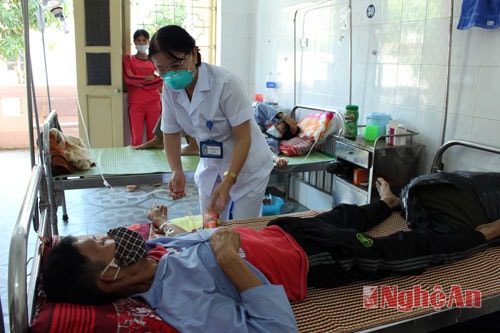 |
| Patient Vo Van Xo (Nghi Xa, Nghi Loc) was hospitalized for treatment of multidrug-resistant tuberculosis at Nghe An Tuberculosis and Lung Hospital. |
Mr. Xo said: “Because my family is poor, during the time I was being treated at home, I still had to work as a construction worker to earn extra income. The work is hard, so many days I came home tired and forgot to take my medicine. Also, taking medicine to treat tuberculosis always requires a certain time of day, so it is very difficult to do.”
Dr. Nguyen Hong Hai - Head of Internal Medicine Department 4 - Tuberculosis and Lung Diseases Hospital said: "Tuberculosis can be cured and the medicine is provided completely free of charge. However, because each course of tuberculosis treatment lasts more than 6 months, it is necessary to strictly follow the regimen and take the medicine properly, so many patients do not respond. Treatment not following the doctor's instructions, stopping treatment before the end of the time is the main reason why the number of patients with drug-resistant tuberculosis increases every year."
Discussing the role of antibiotics in treatment, Dr. Cao Truong Sinh - Vice Principal of Vinh Medical University said: "The use of antibiotics is extremely necessary to treat diseases, but in reality, people using antibiotics incorrectly will increase drug resistance, leading to the application of specific treatment methods and drugs becoming ineffective, prolonged infections (even causing death) and increasing the risk of spreading in the community".
Responsible Antimicrobial Resistance
According to the Ministry of Health, although there are no official statistics on the number of drug-resistant patients each year, most medical facilities are facing the rapid spread of bacteria resistant to many types of antibiotics. Some common types of drug-resistant diseases or limited drug response in treatment today include: infectious diseases, bacterial infections, endocrine disorders, metabolic disorders, cardiovascular diseases, etc.
Among them, tuberculosis is one of the diseases with the highest rate of drug-resistant patients today. Vietnam is one of 27 countries in the world that suffers from the burden of multidrug-resistant tuberculosis. According to statistics from the Tuberculosis and Lung Diseases Hospital, in 2014 there were 40 cases of multidrug-resistant tuberculosis, increasing to 46 cases in 2015 (accounting for 1.7% of the total number of tuberculosis cases being treated at the hospital).
Dr. Dau Quang Minh - Director of the Tuberculosis and Lung Diseases Hospital said: "Most patients with multidrug-resistant tuberculosis have a history of tuberculosis and have been treated for tuberculosis at least once. More importantly, having multidrug-resistant tuberculosis not only leaves consequences for the patient with a poor prognosis and high risk of death, but also creates a burden on society due to the long treatment time and increased treatment costs."
Mr. Hoang Van Hao - Deputy Director of the Department of Health said: "Currently, medical facilities still have difficulties in controlling drug resistance due to lack of equipment to perform antibiotic resistance testing techniques, in order to be able to provide appropriate treatment regimens.
In addition, the management of private medical and pharmaceutical establishments still has many shortcomings. Although the Ministry of Health has issued a document regulating the list of prescription drugs, the sale of drugs without prescription is still quite common; there are no strong enough sanctions to punish them. There are still some doctors who, due to limited qualifications and awareness, prescribe drugs that do not comply with regulations. And people in many regions, either due to habit or low educational level, still buy and use drugs without prescription.
Regarding the solution to the problem of preventing and combating antibiotic resistance in the coming time, according to Mr. Hao, the health sector has identified raising public awareness as a fundamental solution to this problem, and at the same time requires medical units in the area to sign a commitment to use antibiotics responsibly. In addition, it will step up inspection and administrative sanctions against establishments that practice illegal pharmacy and sell drugs without prescription. In addition, it will continue to train and foster a team of clinical pharmacists at medical facilities, in order to form a team of consultants and support doctors to provide appropriate prescriptions.
Besides the participation of the health sector, people need to raise awareness in using drugs, only then can we limit drug resistance in the future.
Moonlight
| RELATED NEWS |
|---|


